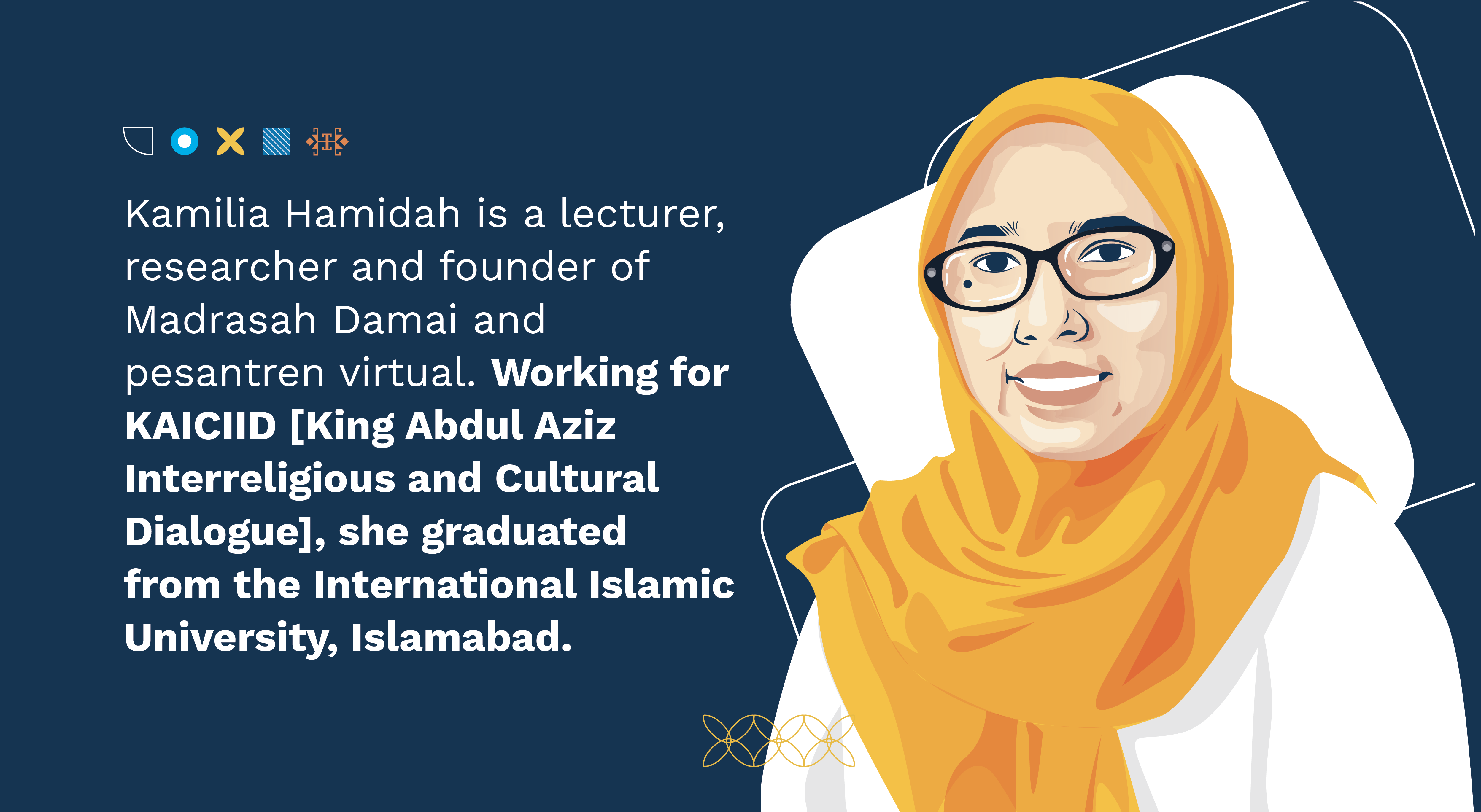Interviewer : What are the main problems in educational institutions about VE [violent extremism] according to you?
KH : I think there is a gap between the theory of empathy education and the practice of empathy in real life. Students are not taught to understand differences and not taught to recognize different identities in real life or through the form of live-in programs. The empathy and tolerance piece of education are still theoretical.
School has chances to nurture the values of empathy for our students through Intercultural engagement. The results of empathy education are building a culture of tolerance, social care, and understanding differences and those are the foundation of peacebuilding, an important part of P/CVE.
Interviewer : What is your role in promoting the values of empathy, tolerance and harmony?
KH : Personally, as an educator, I have the privilege to include in my teaching process the concepts of tolerance, empathy, peace and non-violence. Socially, I have power to build awareness of diversity, ideal tolerant culture and tolerance without loss of identity.
I am creating a space for dialogue about people’s differences and treating them appropriately without stigma and always trying to build positive narratives in social media and avoid controversial issues that lead to division.
Interviewer : What are your initiatives to create a culture of peace?
KH : I initiated the pesantren virtual and the institute for peace pesantren with the aim to learn together about peaceful Islam. As I am a part of the Pesantren, it is important to introduce the students of Pesantren [santri] to peace and specifically to intercultural and interfaith journey programs, as they will be part of the society and be the agent of change. So through this program I am facilitating, we build a bridge for Muslim students who will become Muslim scholars and Christian students who will become pastors or ministers. I called it the “Pantura Interfaith Journey”. So it is important for them to learn together and be friends so that when they become religious leaders they have these experiences and skills to bring peace to their societies.
Interviewer : How do you think Education institutions can be part of peacebuilding or PVE?
KH : I think the education institution has an important role to be part of peacebuilding and PVE. Character building can be the program in the context of the pancasila as the national ideology, and that is the ideal picture of character building. In the context of religion, all religions teach peace values and Educators have a very important role to teach the essence of religion. They need to be included and equipped with facilitation skills on peace and conflict resolution.
Interviewer : What is your comment about the COVID-19 situation relating to peace education :
KH : COVID-19 teaches us about solidarity, social sensitivity, how to work together and how to save more lives together. But on the other hand, it also has the potential for social fragmentation – we live suspiciously of other people – there are cases of rejection of corpses and stigma towards minority groups if someone who contracts the virus is from a minority group.
Interviewer : What is the biggest or most difficult challenge for you in carrying out the vision above?
KH : The biggest challenge is that not everybody has the same concerns in building a culture of peace. So social programs in creating a culture of peace are less sexy. The general public is still reluctant to have a dialogue on differences.
Interviewer : What are your hopes for the future of Indonesia and the world concerning PVE?
KH : My hope is that the peace education development program is not limited to business as usual, project-oriented, which only targets conflict zones or potential conflicts. But that they would also pay attention to the religious education institutions, which have the potential to prepare upcoming religious figures. Even though our country is dominated by urban culture, patron-client culture still dominates our society.
Interviewer : What is your message for education and PVE? And what is your message to the ASEAN and Australian communities in PVE?
KH : We must jointly build a genuine culture of peace from below, from the culture of our society which has been passed down from generation to generation. This approach of a culture of peace will be more acceptable to the general public than the ‘top-down’ approach and PVE programs that are project-oriented.

